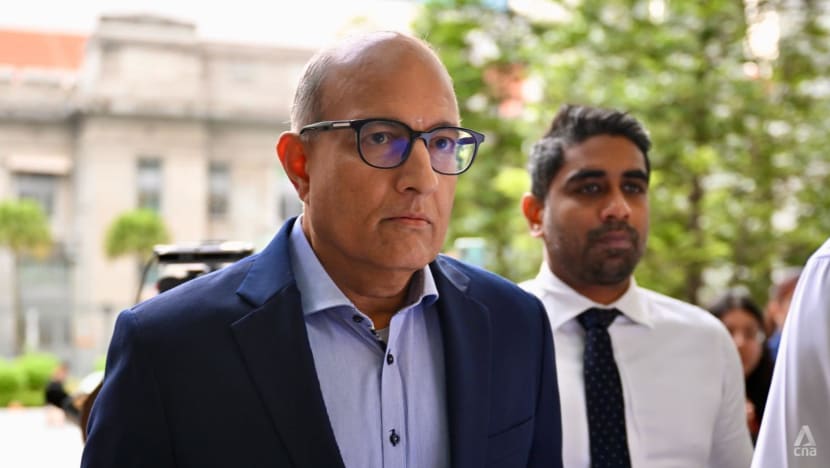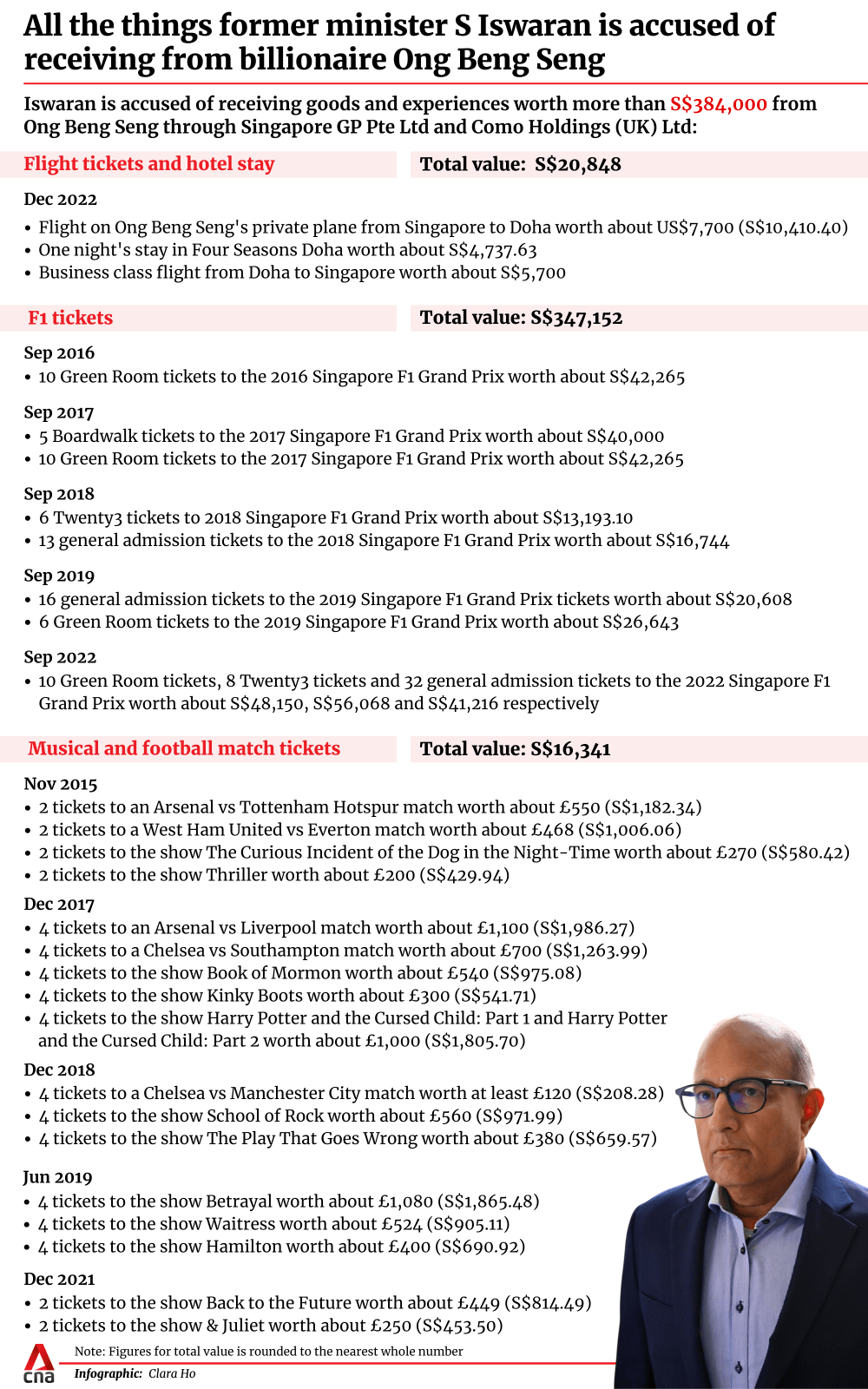Snap Insight: Iswaran criminal charges underscore Singapore’s zero tolerance against corruption
Former Transport Minister S Iswaran pleaded not guilty to multiple charges related to his dealings with tycoon Ong Beng Seng. It is important to note that he is innocent until proven guilty, says SMU associate professor of law Eugene K B Tan.

Former Transport Minister S Iswaran arriving at the State Courts on Jan 18, 2024, when he was charged with multiple offences including corruption. (Photo: CNA/Jeremy Long)

This audio is generated by an AI tool.
SINGAPORE: Singapore’s consistent zero tolerance against corruption was underscored on Thursday (Jan 18) when former Transport Minister S Iswaran was handed 27 criminal charges, related to his dealings with property billionaire Ong Beng Seng.
The case is a body blow to the ruling People’s Action Party (PAP) and the government, which has long prided itself and benefited from the commitment to clean governance and incorruptibility. But the damage has been managed by the swift and resolute action taken.
While there is no perfect system and zero corruption is an aspiration, what Iswaran's case might show up will come under intense scrutiny. Any judgment failures and leadership inadequacies will feature long after the investigations and the judicial process are concluded.
IT GOES BEYOND DOLLAR VALUE OF GIFTS
Of the 27 charges, 24 are for obtaining valuable items as a public servant. They may seem minor if we only consider the dollar value of the things Iswaran is accused of receiving, among which were tickets to football matches and musicals.
But the quantum is not at the heart of the issue.

Section 165 makes it an offence for a public servant to accept or obtain, or attempt to do so, a gift from a party with whom they have official dealings - even if there is no evidence of any official favour shown. Such a gift creates a conflict of interest - whether real, apparent or potential. All are problematic, especially for a minister.
These 24 charges are just as serious as the two charges under the Prevention of Corruption Act - involving gifts allegedly in relation to public contracts - and one charge for obstructing justice.
The case has inevitably attracted comments that high ministerial salaries do not stop corruption. But high salaries never were intended to be the perfect antidote, and never will be. They are but one of a suite of measures to having a strong Cabinet.
It is important to pay our elected officials and civil servants salaries that recognise their role and contributions and to attract individuals of calibre. But high salaries also mean that they are held to high standards of probity and performance.
OFFENCE FOR BOTH GIVER AND RECEIVER
One surprise in court on Thursday was that Mr Ong, who was also arrested last year, was not charged. But it is not uncommon, in a corruption case, for the Public Prosecutor to proceed first against the alleged receiver of the bribe.
Under Singapore’s corruption laws, it is an offence for both the giver and receiver of a bribe. The Attorney-General's Chambers (AGC) approach signals the strong public interest in ensuring that the case against Iswaran be dealt with swiftly and resolutely and with due process.
Mr Ong is not out of the woods and he can be expected to be a prosecution witness. AGC said it will decide how best to proceed against Mr Ong after the case against Iswaran has concluded.
INNOCENT UNTIL PROVEN GUILTY
But it is also important to note that Iswaran is innocent until proven guilty. This is a fundamental precept of Singapore’s criminal justice system and due process must be observed scrupulously.
In his Jan 16 letter resigning from his positions in government, Iswaran rejected the allegations and “will now focus on clearing (his) name”. The Public Prosecutor must now provide the necessary evidence and persuade the court that the offences had been committed.
There will definitely be a political price to pay, but this is indeterminate for now. Regardless of the outcome of the criminal case, the PAP’s challenge is to rebuild trust and confidence that it can and does uphold the high standards it sets for itself.
Eugene K B Tan is a law academic at the Singapore Management University and a former Nominated Member of Parliament.



















